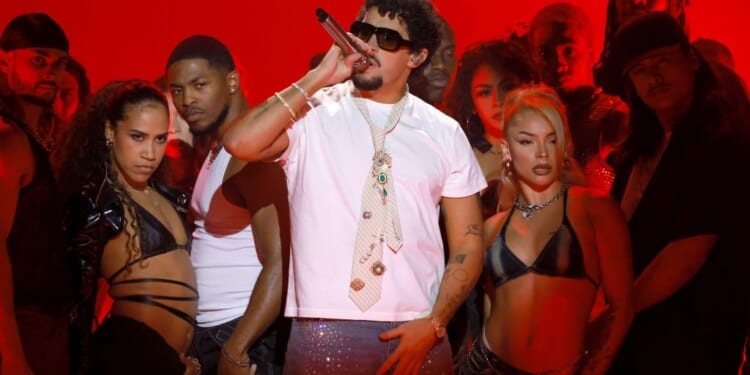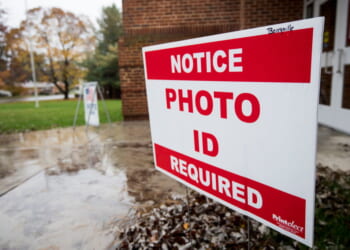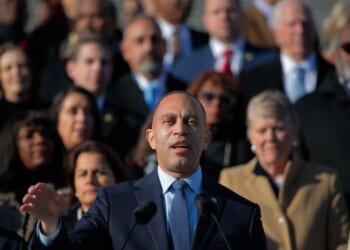Beginning a decade ago, Donald Trump shook the US political scene by challenging not just an elite policy consensus, but the often politely repressive style of the establishment. Where conventional Republicans and Democrats offered evangelical and progressive pieties, respectively, Trump’s MAGA movement delighted in rowdy rallies, vulgar jokes, and shattered taboos. In response, much of the Left doubled down on minute language policing, call-outs, and a general dourness — and paid the price for it at the ballot box in 2016 and 2024.
Now, as the Trumpians consolidate power, the MAGA-sphere is increasingly asserting cultural control; progressives, meanwhile, find themselves in a historically familiar position: that of the underdog. This resetting to an older pattern — the Right policing the culture, the Left in dissent — can be a gift to progressives. That is, provided they pick the right battles and wage them the correct way.
Consider the Right-wing reaction to the NFL’s announcement that Bad Bunny, a massively popular Puerto Rican rapper, will be headlining the 2026 Super Bowl halftime show. “They [NFL officials] suck, and we’ll win, and God will bless us,” declared Homeland Security Secretary Kristi Noem with characteristic nuance in a podcast interview. The “X” (formerly Twitter) user known as the Redheaded Libertarian told her nearly 1 million followers that “Bad Bunny is a demonic Marxist who was been [sic] granted the largest stage with the greatest audience in the middle of a Christian revival.” The MAGA influencer Benny Johnson grumbled that the “NFL is self-destructing year after year.” The hard-Right pundit Jack Posobiec mused about staging an alternative halftime show headlined by the Christian rock band Creed.
Americans who came of age in the post-9/11 era will recognize a replay of l’affaire Dixie Chicks. That was when, amid a different surge of evangelical-tinged jingoism, the country band faced a ferocious backlash, fanned by George W. Bush himself, after one of their number criticized the Iraq War on a London stage. It was an unceremonious cancellation before we had a name for cancel culture, with radio stations nationwide blacklisting the chicks’ music. And it formed part of a broader pattern of early-Aughts conservative repression (remember Attorney General John Ashcroft covering up two nude statues at the Department of Justice?). Such overreach was catnip to liberal comedians like Jon Stewart and fueled the dissent-is-patriotic Left that culminated in the Obama presidency.
The Trumpians, in their overreach, are creating similar openings for the Left: from revoking green cards for pro-Palestinian students to placing entire academic departments under federal ideological supervision in the name of combating anti-Semitism, the second Trump administration is seemingly going out of its way to alienate many of the young people, especially young men, who rallied to it in backlash to the censoriousness of the Left. But the Bad Bunny episode threatens to take the trend to a much broader public.
Bad Bunny, whose birth name is Benito Ocasio, is an ample target for MAGA pitchforks. He has raised vocal opposition against the Trump administration, and in particular its immigration policies, going so far as to exclude the United States altogether from his upcoming tour due to concerns about ICE raids. Perhaps in retribution for these comments, Noem vowed that ICE would be “all over” his Super Bowl performance, which should only be attended by “law-abiding Americans who love this country.” (Press Secretary Karoline Leavitt walked back this overeager vow in a later news conference, noting that there is “no tangible plan” for an ICE raid at the Super Bowl.)
The ethnic and racial dimensions of the fracas are unmistakable. The easy response by many liberals has been to note that the MAGA haters don’t understand that Bad Bunny is himself American, since Puerto Rico has been part of the United States since the time of the Spanish-American War. Fox News host Tomi Lahren, for example, said that “he’s not an American artist.”
It’s tempting for liberals to smugly take note of such ignorance. But the Left’s Puerto-Rico-Is-America correctives fail to address the actual reasons why conservatives are fuming. For many, it’s the fact that Ocasio is vocally anti-Trump. For others, it’s that he performs in Spanish. And some others simply don’t see him as American at all, no matter what the geography books say.
Nativists in the United States have long faced a tough task of drawing the line between “real” and “fake” Americans, compared to nationalists in the rest of the West. Unlike many European countries that have only seen meaningful mass migration in the past few decades, immigration has fundamentally transformed the composition of the American ethnic stock for hundreds of years. The initial overwhelmingly English population was eclipsed — one might even say “replaced” — by successive waves of migrants, first from Ireland and Germany during the 19th century, then by “Ellis Islanders”: Italians, Jews, and other Eastern Europeans who came around the turn of the 20th. This makes it difficult to ascertain what, exactly, an ethnically ideal America would look like.
This is why the phrase “Heritage Americans” has gained ground among many on the online Right in recent months. Unsatisfied with merely drawing the line at the 1965 Immigration and Nationality Act, which abolished the decades-old ethnic quota system and allowed the migration of a vastly greater number of Asians and Africans (mass migration from Latin America was largely driven by other factors, such as the abolition of the Bracero system for importing cheap agricultural labor), they have reached back further in American history to define their in-group and out-group. Ellis Islanders aren’t real Americans, they contend — only those descended from colonial-era stock have a valid claim to American identity.
“Americans who came of age in the post-9/11 era will recognize a replay of l’affaire Dixie Chicks.”
Someone like Bad Bunny, whether or not he identifies himself as American, falls outside of this and other definitions of “American” that have been raised in objection to the liberal notion of America as a “propositional nation” based on broadly defined civic commonalities. “America is not just an idea,” said JD Vance in his speech to the 2024 Republican National Convention. “It is a group of people with a shared history and a common future.” While Vance’s conception of American identity includes “welcoming newcomers,” more hard-line proponents of “Heritage America” make no such concessions to immigration and demographic change. Yet neither is particularly hospitable to a figure like Ocasio.
Ocasio’s strong Puerto Rican and Latino identities conflict with a certain understanding of our national “shared history and common future,” at least in the eyes of MAGA influencers, who see his presence on perhaps the most quintessentially American stage of them all, the Super Bowl field, as not just a partisan offense, but a betrayal of the national identity.
Some influential voices on the Left believe that this showdown could end up redounding to the advantage of Democrats and their more expansive conception of American identity. “The Democrats need to empower messengers that the establishment is scared of,” Molly Jong-Fast wrote in a New York Times op-ed, arguing that the party must take inspiration from Bad Bunny’s defiance of the Trump administration. “Democrats need to listen to the roar of the crowd.”
Yet questions of identity, ethnicity, and belonging aren’t the most productive angle of attack here for the Left. Much more promising is focusing on the micromanagement of the country’s cultural life, which few Americans can tolerate in the long term, and many find contrary to their conception of freedom.
In the 2010s and 2020s, many Left-of-center institutions couldn’t grasp that they weren’t the underdogs. Progressive ideology is built around the defense of those perceived to be downtrodden, oppressed, and excluded from power — so their dominance of American culture created profound cognitive dissonance among the progressive cognoscenti. How could they have power if they were advocates of the powerless? How could they be cool if they were the establishment? How could they be rebels when the CIA ran recruitment ads in which an agency spy identified herself as “a cisgender millennial, who has been diagnosed with generalized anxiety disorder.”
Deep down, many progressives continued to think of themselves as akin to the Dixie Chicks. But this self-conception wasn’t shared by many others, who saw them for what they were: hopelessly uncool and central to the “new dialect of power.” Jong-Fast and others believe the Trump administration’s harsh criticism of Bad Bunny will position his progressive politics as both popular and anti-establishment — or, to put it simply, cool.
Maybe. But it will take more than just a Trumpian crackdown for the Left to restock its currency of cool dissent. After all, Bad Bunny is still performing at the behest of a massive capitalist organization. Any musical act hosted by the NFL can’t be all that subversive. The Trump administration, from another perspective, can present itself as fighting another establishment — just one that happens to be temporarily excluded from the White House.
A Left that wants to capitalize on the Trumpians’ Bush-like overreach will have to embrace a much more raucous style, learn to think and speak more freely within its own ranks, drop carefully workshopped rhetoric, and leave behind the dour managerial style that came to define it over the past decade. It will have to get uncomfortable once more with corporate America and the surveillance state, as its predecessors of an earlier age were.
Nearly a year into the second Trump administration, MAGA has fumbled the ball on culture. It remains to be seen if progressives are ready to drive it to the end zone.

















